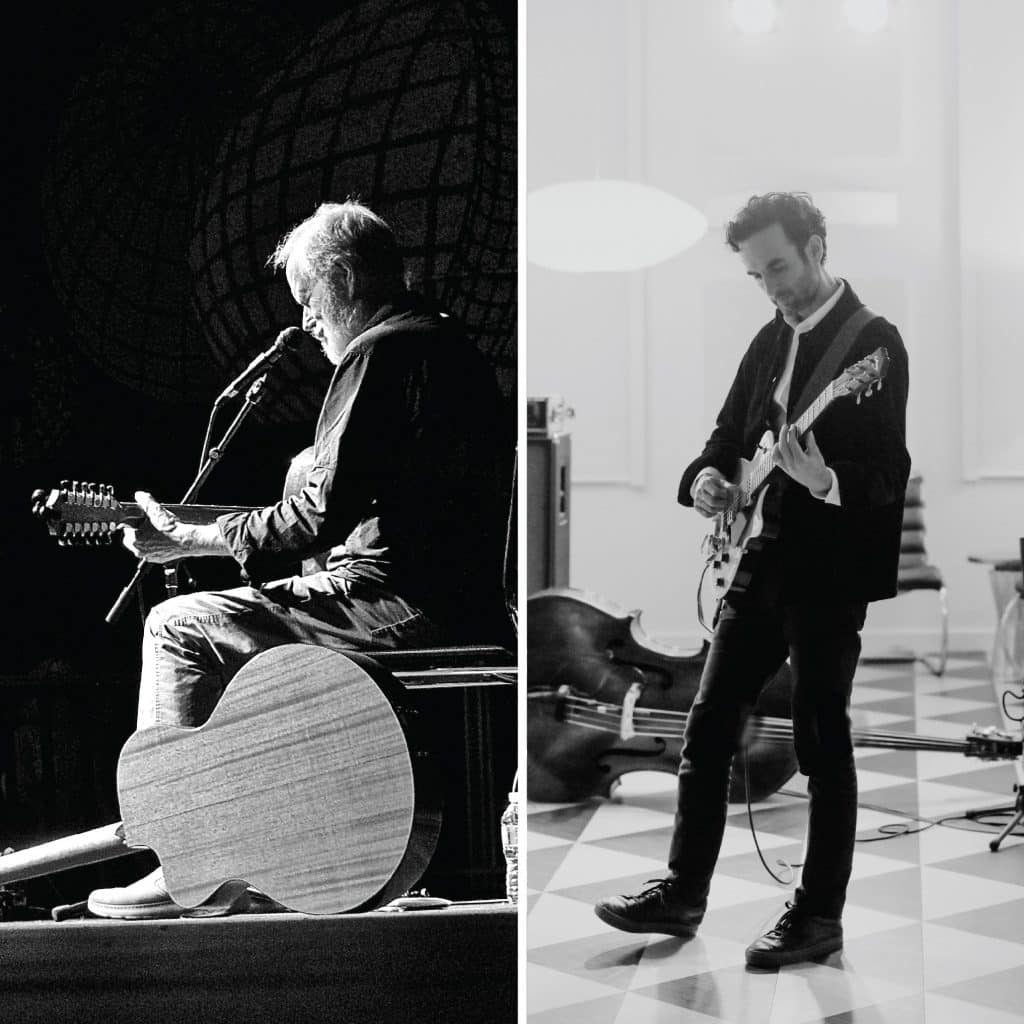Doors: 6:30 PM
Showtime: 7:30 PM
Leo Kottke
Acoustic guitarist Leo Kottke was born in Athens, Georgia, but left town after a year and a half. Raised in 12 different states, he absorbed a variety of musical influences as a child, flirting with both violin and trombone, before abandoning Stravinsky for the guitar at age 11.
After adding a love for the country-blues of Mississippi John Hurt to the music of John Phillip Sousa and Preston Epps, Kottke joined the Navy underage, to be underwater, and eventually lost some hearing shooting at lightbulbs in the Atlantic while serving on the USS Halfbeak, a diesel submarine.
Kottke had previously entered college at the U of Missouri, dropping out after a year to hitchhike across the country to South Carolina, then to New London and into the Navy, with his twelve string. “The trip was not something I enjoyed,” he has said, “I was broke and met too many interesting people.”
Discharged in 1964, he settled in the Twin Cities area and became a fixture at Minneapolis’ Scholar Coffeehouse, which had been home to Bob Dylan and John Koerner. He issued his 1968 recording debut LP Twelve String Blues, recorded on a Viking quarter-inch tape recorder, for the Scholar’s tiny Oblivion label. (The label released one other LP by The Langston Hughes Memorial Eclectic Jazz Band.)
After sending tapes to guitarist John Fahey, Kottke was signed to Fahey’s Takoma label, releasing what has come to be called the Armadillo record. Fahey and his manager Denny Bruce soon secured a production deal for Kottke with Capitol Records.
Kottke’s 1971 major-label debut, “Mudlark,” positioned him somewhat uneasily in the singer/songwriter vein, despite his own wishes to remain an instrumental performer. Still, despite arguments with label heads as well as with Bruce, Kottke flourished during his tenure on Capitol, as records like 1972’s “Greenhouse” and 1973’s live “My Feet Are Smiling” and “Ice Water” found him branching out with guest musicians and honing his guitar technique.
With 1975’s Chewing Pine, Kottke reached the U.S. Top 30 for the second time; he also gained an international following thanks to his continuing tours in Europe and Australia.
His collaboration with Phish bassist Mike Gordon, “Clone,” caught audiences’ attention in 2002. Kottke and Gordon followed with a recording in the Bahamas called “Sixty Six Steps,” produced by Leo’s old friend and Prince producer David Z.
Kottke has been awarded two Grammy nominations; a Doctorate in Music Performance by the Peck School of Music at the U of Wisconsin, Milwaukee; and a Certificate of Significant Achievement in Not Playing the Trombone from the U of Texas at Brownsville with Texas Southmost College.
Julian Lage
Guitarist Julian Lage expands his horizons on View With A Room, a collection of 10 compelling original compositions that marks his second release for Blue Note Records. Having established a home base with his brilliant and deeply attuned trio of bassist Jorge Roeder and drummer Dave King—most recently heard on the guitarist’s acclaimed 2021 Blue Note debut Squint—Lage casts his gaze outward to discover new orchestrational possibilities with the addition of six-string icon Bill Frisell, who adds his inimitable voice to this absolutely stunning album.
Hailed as one of the most prodigious guitarists of his generation and “highest category of improvising musicians” (New Yorker), Julian Lage has spent more than a decade searching through the myriad strains of American musical history via impeccable technique, free association and a spirit of infinite possibility. The California-born New York-based musician boasts a prolific resume on his own accord in addition to collaborating with Gary Burton and John Zorn, as well as duo projects with Nels Cline, Chris Eldridge and Fred Hersch, among others.

